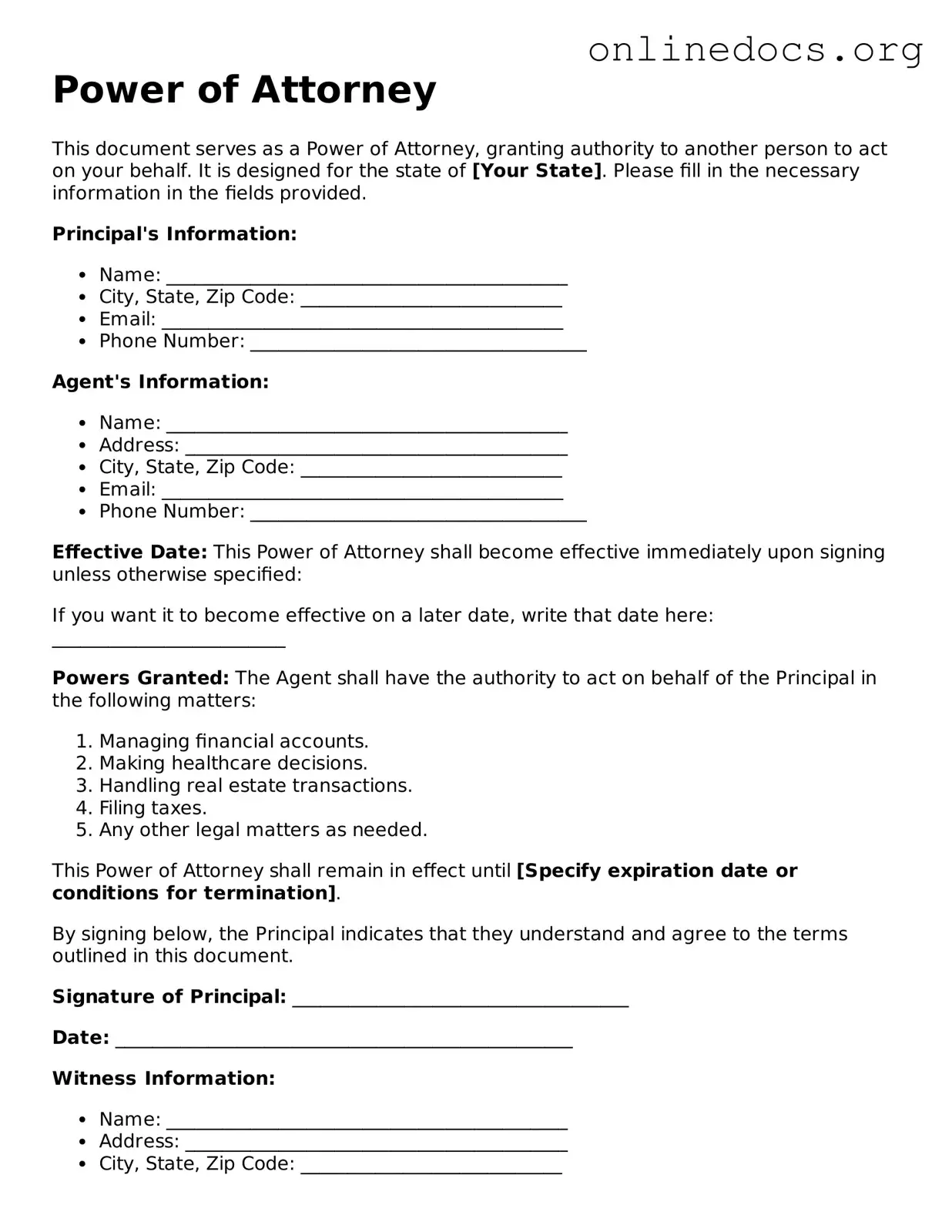A Living Will is a document that outlines a person's wishes regarding medical treatment in situations where they are unable to communicate their preferences. Like a Power of Attorney, it allows individuals to express their desires and ensure that their choices are respected. Both documents serve to protect an individual's rights and preferences, particularly in critical situations involving health care decisions.
A Health Care Proxy is similar to a Power of Attorney in that it designates someone to make medical decisions on behalf of another person. This document specifically focuses on health care choices, ensuring that the appointed individual can act in accordance with the patient’s wishes. Both forms empower a trusted person to make decisions when the individual cannot do so themselves.
A Financial Power of Attorney specifically grants someone the authority to manage financial matters on behalf of another. This document is akin to a general Power of Attorney but focuses solely on financial transactions, such as paying bills or managing investments. Both documents provide a means for individuals to delegate authority to someone they trust, ensuring that their financial affairs are handled appropriately.
A Durable Power of Attorney remains effective even if the person who created it becomes incapacitated. This is a key similarity with a standard Power of Attorney, which may become void under certain conditions. Both documents are designed to ensure that someone can continue to act on behalf of the individual, providing peace of mind during challenging times.
A Guardianship is a legal relationship where a court appoints someone to care for another individual who is unable to make decisions for themselves. While a Power of Attorney is created voluntarily by the individual, a guardianship is established through a court process. Both serve to protect individuals who cannot manage their own affairs, though the mechanisms and oversight differ significantly.
A Trust is a legal arrangement where one party holds property for the benefit of another. Similar to a Power of Attorney, a trust allows for the management of assets and can specify how those assets should be handled if the individual becomes incapacitated. Both instruments can help ensure that an individual’s wishes regarding their property are honored, though trusts often involve a broader range of assets.
For those looking to gather necessary information about a candidate's qualifications, the essential Recommendation Letter form is a valuable resource. This structured document facilitates the collection of insights from individuals who can vouch for one's character and accomplishments.
A Will is a document that outlines how a person's assets should be distributed after their death. While a Power of Attorney is effective during a person's life, a will takes effect upon their passing. Both documents are essential for ensuring that an individual’s wishes are followed, providing clarity and direction for loved ones during difficult times.
An Advance Directive combines elements of a Living Will and a Health Care Proxy. It provides instructions for medical care and designates someone to make decisions on the individual’s behalf. Like a Power of Attorney, it ensures that a person's preferences are honored, particularly in medical situations where they may not be able to communicate.
